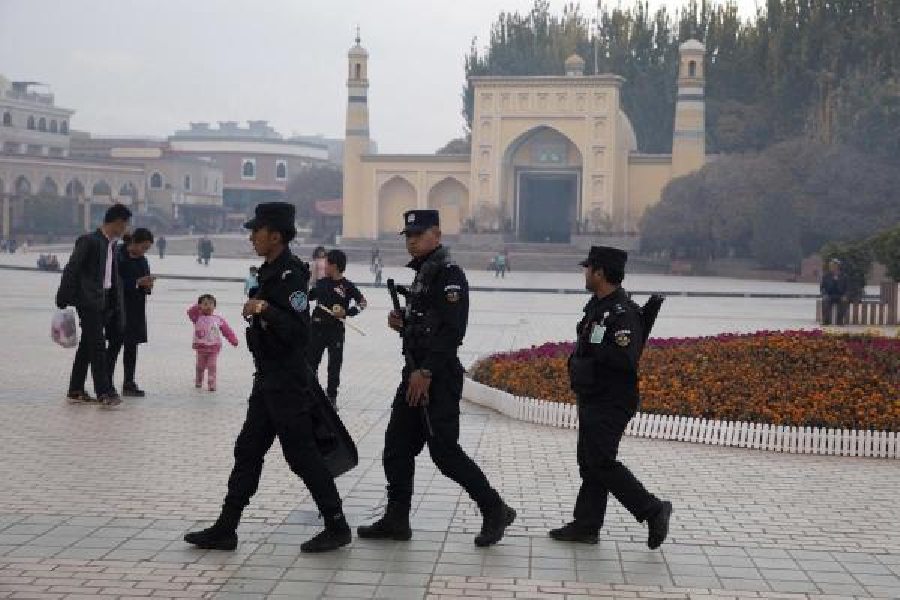The Chinese government has expanded its campaign of closing mosques to regions other than Xinjiang, where for years it has been blamed for persecuting Muslim minorities, according to a Human Rights Watch report released on Wednesday.
Authorities have closed mosques in the northern Ningxia region as well as Gansu province, which are home to large populations of Hui Muslims, as part of a process known officially as “consolidation”, according to the report, which draws on public documents, satellite images and witnesses testimonies.
Local authorities also have been removing architectural features of mosques to make them look more “Chinese”, as part of a campaign by the ruling Communist Party to tighten control over religion and reduce the risk of possible challenges to its rule.
President Xi Jinping in 2016 called for the “Sinicization” of religions, initiating a crackdown that has largely concentrated on the western region of Xinjiang, home to more than 11 million Uyghurs and other Muslim minorities.
A UN report last year found China may have committed “crimes against humanity” in Xinjiang, including through its construction of a network of extrajudicial internment camps believed to have held at least 1 million Uyghurs, Huis, Kazakhs and Kyrgyz.
Chinese authorities have decommissioned, closed down, demolished or converted mosques for secular use in regions outside Xinjiang as part of a campaign aimed at cracking down on religious expression, according to Human Rights Watch. In response to an Associated Press request for comment, the Chinese foreign ministry said Beijing attaches great importance to the protection and repair of mosques.
“The relevant organisations should abandon their ideological bias against China and stop using religious issues to engage in political manipulation and smear China’s image,” the ministry said in a statement.
One of the first known references to “mosque consolidation” appears in an internal party document from April 2018 that was leaked to US media as part of a trove of documents known as the “Xinjiang Papers”.
The file instructed state agencies throughout the country to “strengthen the standardised management of the construction, renovation and expansion of Islamic religious venues”.
“The Chinese government is not consolidating’ mosques as it claims, but closing many down in violation of religious freedom,” said Maya Wang, acting China director at Human Rights Watch.











